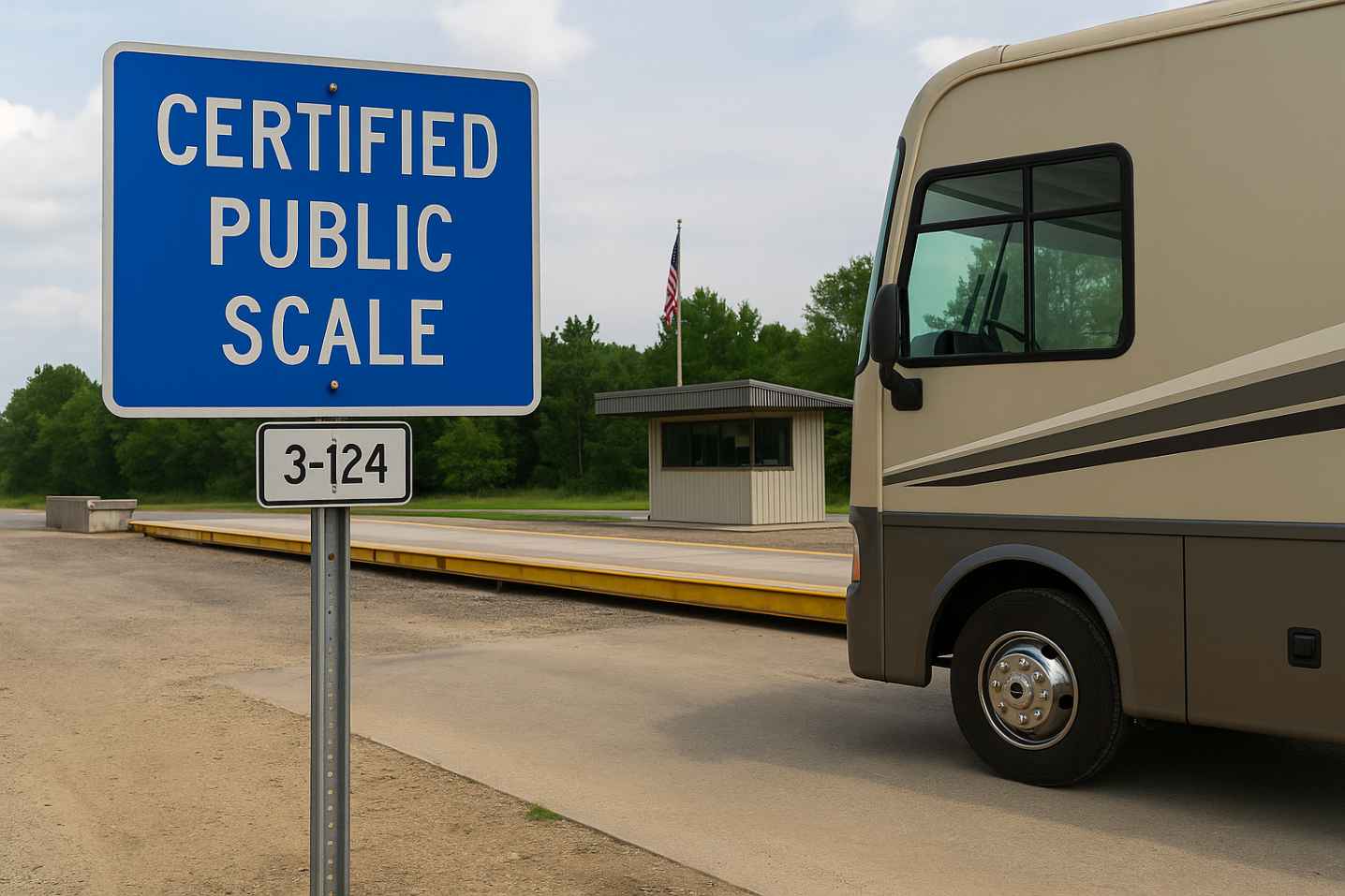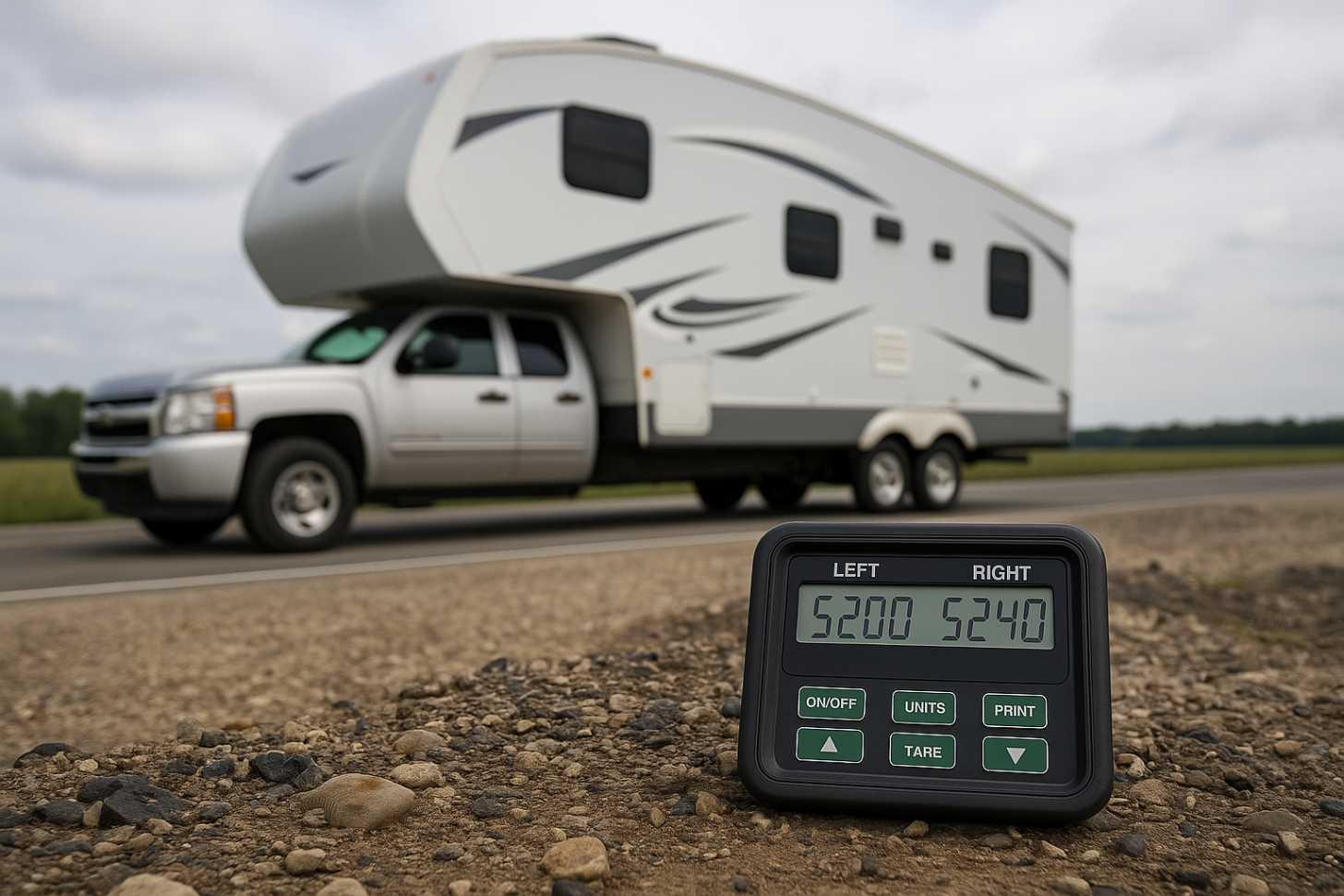If you’re planning on purchasing an RV or need to understand how much your RV weighs, you’ve come to the right place. The weight of your RV is crucial for towing purposes, ensuring that your vehicle can safely handle the load.
RV weight varies depending on the class of RV, the materials used in construction, and additional features such as water tanks or slide-outs. In this article, we’ll answer the common question: how much does an RV weigh? and provide detailed information on camper weight, average camper weight, trailer weight, and much more.
Whether you’re considering a travel trailer, class A motorhome, or any other RV type, this guide will provide all the essential details.
What Is an RV?
An RV (Recreational Vehicle) is a motorized or towable vehicle that combines transportation and living space, providing comfort for outdoor adventures.
RV camping is one of the most popular ways to travel in the U.S., offering families, solo travelers, and outdoor enthusiasts the flexibility to explore without sacrificing home comforts.
There are several types of RVs, including motorhomes (class A, B, C) and trailer campers (including travel trailers, fifth-wheel trailers, and pop-up campers).
What Determines an RV’s Weight?

When it comes to RVs, weight is a big deal—and I’m not just talking about the number of bags of chips you’ve packed. The weight of your RV depends on several factors:
- RV Type: Different types of RVs have different weight classes. A Class A motorhome will weigh a lot more than a pop-up camper.
- Size & Features: The longer your RV or the more features it has (think big kitchens, multiple bathrooms, or solar power setups), the heavier it will be.
- Loaded Weight: Don’t forget the weight of everything you’re bringing along—luggage, bikes, food, and all the gear that makes your RV life easier.
For example, your Class A motorhome, which is essentially a hotel on wheels, could weigh anywhere from 13,000 to 30,000+ pounds when fully loaded.
Compare that to a pop-up camper that weighs as little as 1,000 to 3,000 pounds—big difference, right?
How Much Does An RV Weigh?
Here’s a breakdown to give you a clearer picture:
| RV Type | Weight Range |
| Class A Motorhomes | 13,000 to 30,000+ lbs |
| Class B Motorhomes | 6,000 to 8,000+ lbs |
| Class C Motorhomes | 10,000 to 12,000+ lbs |
| Travel Trailers | 2,500 to 8,000+ lbs |
| Fifth-Wheel Trailers | 10,000 to 20,000+ lbs |
| Toy Haulers | 5,000 to 20,000+ lbs |
| Pop-Up Campers | 1,000 to 3,000 lbs |
Why Does the Weight of Your RV Matter?
You might be thinking, “It’s just a number, right?” Well, not exactly. Weight plays a huge role in the overall safety of your RVing experience. Here are a few reasons why you need to know how much your RV weighs:
1. Towing Safety: If you’re towing, understanding the weight is key to choosing the right tow vehicle. Your truck or SUV has a Gross Towing Weight (GTW) limit, and exceeding that can cause serious damage to your vehicle, or worse, an accident.
2. Road Regulations: Each state has different weight limits for vehicles traveling on highways. If your RV exceeds those limits, you could face fines or have to take an alternative route.
3. Maintenance and Longevity: Heavier RVs put more strain on your tires, brakes, and suspension. Keeping the weight in check helps prevent premature wear and tear.
So, while the weight may seem like a small thing, it’s an important consideration for a smooth, safe ride.
How Can I Find Out How Much My RV Weighs?

There are a few ways to figure out how much your RV weighs, depending on whether you’re working with a motorhome or a towable unit.
1. Check the Manufacturer’s Weight Rating: Every RV has a Safety Compliance Certification Label that lists important weight information. Look for the Gross Vehicle Weight Rating (GVWR), which is the maximum weight the RV is designed to carry.
2. Weigh Your RV: If you really want to be precise, take your RV to a certified weigh station. This will give you an accurate reading of your curb weight and allow you to see how much room you have left for gear and passengers.
3. Use a Portable Weighing System: Some RV owners use portable weighing systems that connect to their tires. These tools give a pretty accurate reading of your RV’s weight as it rolls down the road.
What’s the Difference Between Dry Weight, GVWR, and CCC?

Okay, here’s where it gets a little technical. But don’t worry, I’ll break it down so it’s easy to understand.
- Dry Weight (or Unloaded Vehicle Weight – UVW): This is the weight of your RV straight from the factory, without any cargo, water, or passengers. It’s a starting point but doesn’t tell the full story of how heavy your rig will be on the road.
- Gross Vehicle Weight Rating (GVWR): This is the maximum safe weight your RV can handle—cargo, water, passengers, and all. Don’t ever exceed this number!
- Cargo Carrying Capacity (CCC): This is the amount of weight your RV can safely carry after factoring in everything—luggage, food, bikes, and even your furry friends.
It’s important to stay within these limits to ensure your RV is safe to drive and won’t cause excessive wear on your vehicle’s systems. If you ever feel like you’re getting close to the limit, check your numbers!
FAQ Section:
How much does a camper weigh?
Camper weight varies, but most small campers weigh between 1,000 lbs to 3,500 lbs, while average camper weight ranges between 3,500 lbs to 7,000 lbs. Larger units can weigh upwards of 10,000 lbs.
How much does a 20 ft camper weigh?
A 20 ft camper weight typically falls between 2,500 lbs to 7,000 lbs, depending on its design and materials. Smaller models are on the lighter end of the spectrum.
How much does a small camper weigh?
Small campers usually weigh between 1,000 lbs to 3,500 lbs, depending on the materials and features. This makes them easy to tow for smaller vehicles.
How much does a travel trailer weigh?
Travel trailer weight can range from 2,000 lbs to 10,000 lbs, with the average being around 5,000 lbs. Larger models with slide-outs and more luxurious features weigh more.
How much do RVs weigh?
RVs typically weigh anywhere from 5,000 lbs to 30,000 lbs depending on the type and size. Class A motorhomes are heavier, while small campers and pop-up trailers are on the lighter end of the spectrum.
Understanding RV Weights for Safe Towing
Knowing how much an RV weighs is crucial for both the safety and legality of your travels. Whether you’re towing a small camper, a large travel trailer, or a luxurious class A motorhome, understanding the dry weight vs GVWR, tongue weight, and camper trailer weight will ensure a safe and enjoyable experience.
Always check your vehicle’s towing capacity and compare it with the average trailer weight and camper weight limits for a smooth journey.

